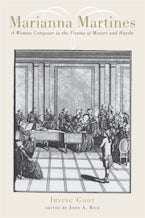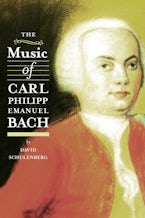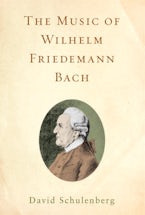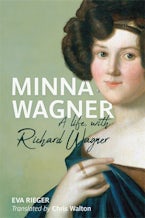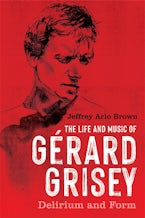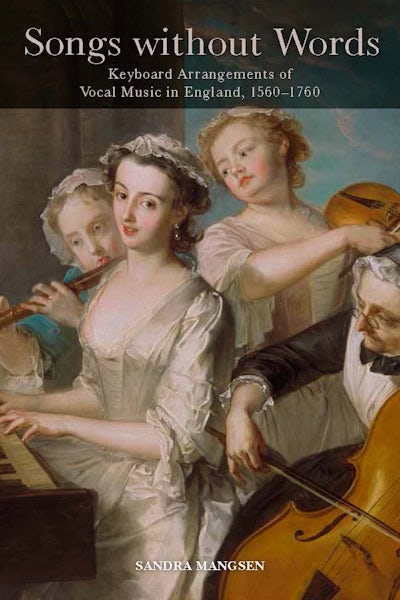
Title Details
282 Pages
22.8 x 15.2 cm
7 b/w, 76 line illus.
Series: Eastman Studies in Music
Series Vol. Number:
133
Imprint: University of Rochester Press
Songs without Words
Keyboard Arrangements of Vocal Music in England, 1560-1760
- Description
- Contents
- Reviews
Pathbreaking study of a vast and intriguing repertoire: arrangements for keyboard instruments of songs, arias, and other vocal pieces, from the age William Byrd to that of Handel.
Keyboard arrangements of vocal music flourished in England between1560 and 1760. Songs without Words, by noted harpsichordist and early-music authority Sandra Mangsen, is the first in-depth study of this topic, uncovering abody of material that is remarkably varied, musically interesting, and indicative of major trends in musical and social life at the time.
Mangsen's Songs without Words argues that the pieces upon which these keyboardarrangements were based constituted a shared repertoire, akin to the jazz standards of the twentieth century. In Restoration England, the ballad tradition saw tunes and texts move between oral, manuscript, and printed transmissionand from street to playhouse and back again. During the eighteenth century, printed keyboard arrangements were aimed particularly at female amateur keyboardists and helped opera to become a widely popular genre.
Songs without Words considers a wide range of model pieces, including songs of many kinds and arias and other numbers from operas and oratorios. The resulting keyboard versions range from simple and pedagogically oriented to highly virtuosic. Two central issues -- the relationship between an arrangement and its model and the reception and aesthetics of arrangements -- are explored in the framing chapters. The result is a study that will be of great interest toscholars, performers, and anyone who loves the music of the late Renaissance, Baroque, and early Classic eras.
Sandra Mangsen is professor emerita of music at the University of Western Ontario.
Keyboard arrangements of vocal music flourished in England between1560 and 1760. Songs without Words, by noted harpsichordist and early-music authority Sandra Mangsen, is the first in-depth study of this topic, uncovering abody of material that is remarkably varied, musically interesting, and indicative of major trends in musical and social life at the time.
Mangsen's Songs without Words argues that the pieces upon which these keyboardarrangements were based constituted a shared repertoire, akin to the jazz standards of the twentieth century. In Restoration England, the ballad tradition saw tunes and texts move between oral, manuscript, and printed transmissionand from street to playhouse and back again. During the eighteenth century, printed keyboard arrangements were aimed particularly at female amateur keyboardists and helped opera to become a widely popular genre.
Songs without Words considers a wide range of model pieces, including songs of many kinds and arias and other numbers from operas and oratorios. The resulting keyboard versions range from simple and pedagogically oriented to highly virtuosic. Two central issues -- the relationship between an arrangement and its model and the reception and aesthetics of arrangements -- are explored in the framing chapters. The result is a study that will be of great interest toscholars, performers, and anyone who loves the music of the late Renaissance, Baroque, and early Classic eras.
Sandra Mangsen is professor emerita of music at the University of Western Ontario.
Introduction
Ballads Transformed
Arias Domesticated: The Ladys Entertainment and Other Early Eighteenth-Century Anthologies
With Their Symphonies: William Babell and The Ladys Entertainment Books 3 and 4
Opera Remix: Babell's Suits of 1717
After Babell: Arrangements for Ladies and Gentlemen
Afterthoughts
Appendix: The Ladys Banquet (Second Series): Contents, Concordances, and Dissemination
Notes
Bibliography
Index
Ballads Transformed
Arias Domesticated: The Ladys Entertainment and Other Early Eighteenth-Century Anthologies
With Their Symphonies: William Babell and The Ladys Entertainment Books 3 and 4
Opera Remix: Babell's Suits of 1717
After Babell: Arrangements for Ladies and Gentlemen
Afterthoughts
Appendix: The Ladys Banquet (Second Series): Contents, Concordances, and Dissemination
Notes
Bibliography
Index
"Offers a useful introduction to selected repertories of vocal music arranged for keyboard in England between the sixteenth and eighteenth centuries and also charts some territory that will be unfamiliar to most readers." EARLY MUSIC PERFORMER
"The subject of musical arrangement is one that has begun to arouse increasing interest among musicologists in recent years, as they have moved away from a long-standing tendency to deride such reworkings. It is thus particularly welcome that musicology's re-evaluation of arrangement as a creative activity has included a strong focus on early music, especially that of the seventeenth and eighteenth centuries. Sandra Mangsen's book is the first full-length study of the topic for the early modern period, so it forms an important addition to the field." MUSIC & LETTERS
"A well-documented book on a very attractive topic that is still little researched. The prose is clear and the tables are detailed and informative. [Mangsen] considers the purposes and motivations for the dissemination of arrangements in a longer chronological perspective, aligning Babell's virtuoso display with that of Liszt or Godowsky." EARLY MUSIC
"Mangsen should be congratulated for her thorough investigation into such a broad subject with numerous sources of disparate natures. This repertory has not received such thoughtful interrogation in a book-length publication, and Songs without Words has taken a large step toward helping us understand the complex interweaving of theatre culture, domestic markets, social interaction, and the role of performers/composers/copyists in musical transmission between 1560 and 1760. . . . [A] valuable and significant contribution to the literature on English music and will significantly aid future examinations that further our understanding of this exciting period." NABMSA REVIEWS
"Sandra Mangsen brings deep and thorough research to [her] central topic. The book raises and answers questions like: What was the market for the keyboard arrangements of songs from the pop culture of the day? Did it vary by gender? Were they intended for professionals, good amateurs, or dilettantes? What purposes did these pieces serve before the age of recording? Does the absence of a song's words imply anything for performances? Should keyboard arrangements of songs be considered as important repertoire alongside original keyboard pieces? . . . Physically deluxe, . . . a nice-looking book." AMERICAN RECORD GUIDE
Hardcover
9781580465496
August 2016
$125.00 / £105.00
Ebook (EPDF)
9781782048350
August 2016
£24.99 / $29.95
Title Details
282 Pages
2.28 x 1.52 cm
7 b/w, 76 line illus.
Series: Eastman Studies in Music
Series Vol. Number:
133
Imprint: University of Rochester Press


